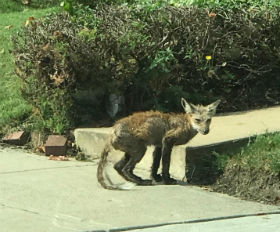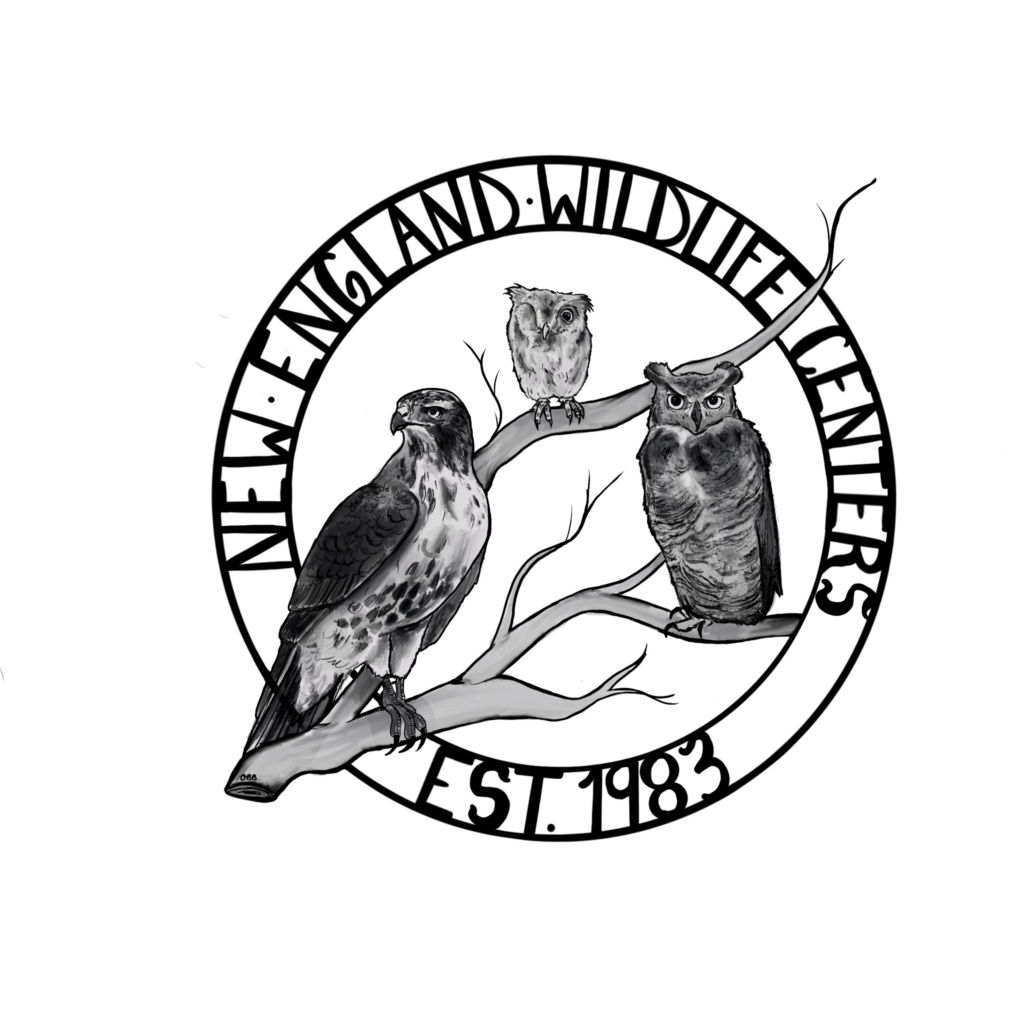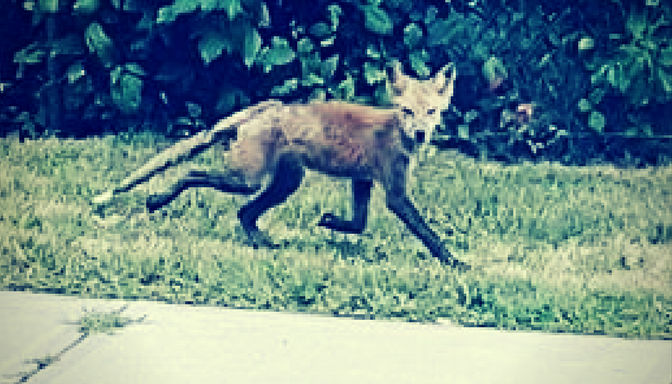Important information on how to get help for wildlife in need of care
By many estimates, there are hundreds of thousands of wild animals in need of medical care in Massachusetts every year.
 People spot red foxes scavenging for food and suffering from mange. They see geese with broken wings wandering in parking lots. They find turtles with cracked shells. After major storms, they come across dehydrated and exhausted birds and displaced mammals.
People spot red foxes scavenging for food and suffering from mange. They see geese with broken wings wandering in parking lots. They find turtles with cracked shells. After major storms, they come across dehydrated and exhausted birds and displaced mammals.
So many kind people just like you send us pictures they quickly snap on their phones and contact us hoping to find help for suffering animals.
We are grateful that there are so many people who take the time to learn more about what they can do to help wildlife!
To help speed the process for getting care, here are three things you can do if you see a sick or injured wild animal:
- Contact a professional first. Contact your local animal control officer, a wildlife rehabilitator in your area, or New England Wildlife Center at 781-682-4878 for instructions BEFORE approaching or touching wildlife.
- Observe behavior and make a note of the location. Having this information will help you describe symptoms and injuries, and assist wildlife rescue professionals in locating the animal.
- Call New England Wildlife Center at 781-682-4878 BEFORE you bring an animal to our hospital. When the hospital is full, we cannot admit new wild patients until we have “beds” available. We have this policy to make sure that all of our wild patients are given the highest quality veterinary treatment and care!
When people call the hospital or send us a message on Facebook, they often ask similar questions. Here are answers to some of the most frequent questions we receive from people concerned about injured wildlife in their community.
Can you come and get the injured animal?
NEWC: We are not able to pick up sick, injured, and orphaned wildlife. We suggest contacting your local animal control officer, the Animal Rescue League of Boston’s Rescue team, or a local wildlife rehabilitator for help. Be aware these organizations are not 24/7 emergency services and may have limited weekend hours.
I found a baby animal. What should I do?
NEWC: The first step is to leave a baby animal alone where it is. Keep pets indoors and restrained, and continue to monitor the baby to see if a parent is nearby.
ALWAYS ASK A PROFESSIONAL before handling wildlife to make sure the baby animal is an orphan in need of care. Follow the professional’s instructions. Very importantly, handling should only be done when instructed and with leather gloves to prevent scratches.
For more information on what to do if you see a baby animal, read our instructions for orphaned wildlife at newildlife.org/orphaned-wildlife.
I see an injured wild animal, but I don’t know what it is. Will you be able to help it?
NEWC: Especially after major storms, it’s not unusual to see birds and mammals that are not usually found in your area. Shoreline birds, seabirds, and waterfowl are especially exposed to storms with high winds.
NEWC can treat over 225 different species of wildlife, including rabies vector species. If you can take a picture or can describe the animal, we can try to identify the species.
Thank you for caring about wildlife!
New England Wildlife Center is open to the public, 10 am – 4 pm, 7 days a week, all year long. You can look through the observation windows at our wildlife hospital to see animals receiving care. You can also learn about local habitats in our Weezie Nature Center and by walking along our outdoor Andrea McKenna Harris nature trail.
To get the latest updates on wildlife receiving care at NEWC and other educational information, follow us on Facebook or subscribe to our Wild Update email list.


